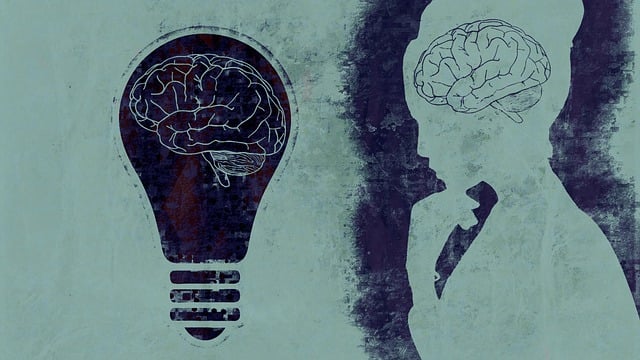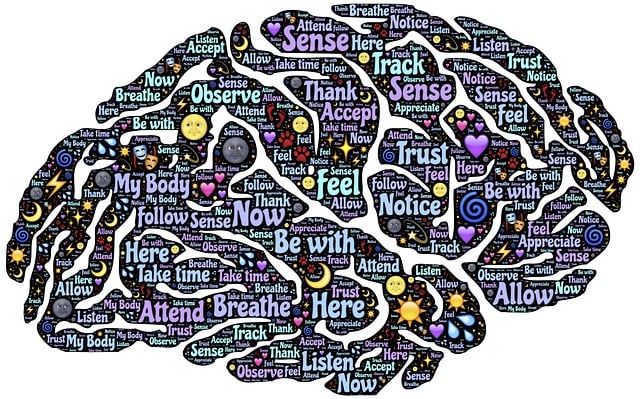Longmont French Speaking Therapy addresses the unique mental health needs of their French-speaking community through culturally sensitive coaching and self-assessment tools. With traditional methods often failing to resonate, they've developed specialized resources focused on emotional intelligence and coping skills development. These assessments create safe spaces for clients to explore mental wellness, fostering open communication and tailored treatment plans. By integrating cultural competency training, healthcare providers ensure accurate evaluations for diverse patients, revolutionizing self-assessment in Longmont. The future of these tools lies in adaptability, incorporating innovative practices and user feedback to promote mental health effectively while reducing stigma.
Mental wellness is a vital aspect of overall health, and accurate self-assessment tools play a crucial role in understanding individual well-being. This article explores the development of such tools, focusing on the unique approach taken by Longmont French Speaking Therapy. We delve into the significance of customized assessments, cultural sensitivity, and their impact on mental health evaluations. By examining these strategies, we aim to highlight innovative practices that can improve access to mental wellness support for diverse populations, with a specific emphasis on Longmont’s therapeutic contributions.
- Understanding Mental Wellness and its Assessment
- The Need for Customized Self-Assessment Tools
- Developing Effective Self-Assessment Tools at Longmont French Speaking Therapy
- Integrating Cultural Sensitivity in Mental Health Evaluations
- Future Prospects and Continuous Improvement Strategies
Understanding Mental Wellness and its Assessment

Mental wellness is a holistic concept encompassing not just the absence of mental illness but also emotional, psychological, and social well-being. It’s a dynamic state that can fluctuate over time, influenced by various factors such as stress levels, relationships, lifestyle choices, and environmental conditions. Assessing mental wellness involves identifying both strengths and areas for improvement to support individuals in achieving optimal emotional balance.
In the context of Longmont French Speaking Therapy, understanding mental wellness goes beyond cultural barriers. Recognizing that language plays a significant role in expression and healing, therapists tailor their approach to meet the unique needs of French-speaking clients. This involves incorporating culturally sensitive mental wellness coaching programs development techniques, such as promoting emotional well-being promotion techniques through supportive conversations and trauma-informed support services. By doing so, they foster a safe space for clients to explore and manage their mental health effectively.
The Need for Customized Self-Assessment Tools

In today’s fast-paced world, mental wellness is a cornerstone of overall health and well-being. However, navigating emotional challenges can be complex, especially for those who speak French as their primary language in communities like Longmont. Traditional self-assessment tools often lack cultural sensitivity and may not adequately address the unique needs of French-speaking individuals seeking therapy. This gap highlights the pressing need for customized mental health assessment methods that resonate with diverse populations.
Developing tailored self-assessment tools is crucial for promoting emotional well-being and effective treatment planning. By incorporating culturally responsive practices, these tools can facilitate open communication between therapists and clients from various linguistic backgrounds. Moreover, they enable the identification of specific stressors and strengths related to cultural identity, thereby enhancing Stress Reduction Methods and boosting confidence in a supportive environment.
Developing Effective Self-Assessment Tools at Longmont French Speaking Therapy

At Longmont French Speaking Therapy, we understand that developing effective self-assessment tools is paramount to fostering mental wellness. Our therapists are dedicated to creating resources tailored to meet the unique needs of our French-speaking community. By incorporating elements of Emotional Intelligence and coping Skills Development, these tools aim to provide individuals with a comprehensive understanding of their emotional state and potential areas for growth.
Through careful design, these self-assessment tools offer a safe and accessible way to explore mental wellness. They empower individuals to take charge of their emotional well-being by identifying stress triggers, enhancing emotional awareness, and promoting healthy coping strategies. By integrating these assessments into therapy sessions, Longmont French Speaking Therapy ensures personalized care, enabling clients to navigate life’s challenges with resilience and improved mental wellness.
Integrating Cultural Sensitivity in Mental Health Evaluations

Incorporating cultural sensitivity into mental health evaluations is a vital aspect of providing inclusive and effective care, especially in diverse communities like Longmont where French-speaking individuals reside. Cultural competency among healthcare providers ensures that evaluation tools are accessible and relevant to patients from various ethnic and linguistic backgrounds. This approach recognizes the impact of cultural factors on mental wellness and facilitates more accurate assessments. For instance, certain coping mechanisms and expressions of stress can vary across cultures, and French-speaking individuals may have unique perspectives on well-being.
To enhance cultural sensitivity in mental health evaluations, healthcare providers should undergo specialized training, such as that offered by organizations conducting Stress Management Workshops or providing Healthcare Provider Cultural Competency Training. These programs educate professionals about the nuances of different cultures, enabling them to adapt assessment methods accordingly. By doing so, French-speaking therapy clients in Longmont can receive tailored support, ensuring their mental wellness is accurately assessed and addressed within a culturally competent framework.
Future Prospects and Continuous Improvement Strategies

The future of mental wellness self-assessment tools lies in their ability to adapt and evolve with changing needs and research insights. Continuous improvement strategies should focus on integrating emerging therapeutic techniques, such as those offered by Longmont French Speaking Therapy, to cater to diverse cultural backgrounds and linguistic preferences. By incorporating innovative approaches like mindfulness practices, cognitive reframing, and stress management techniques into self-assessment tools, we can enhance their effectiveness in promoting mental health and well-being.
Regular updates and refinements based on user feedback and the latest scientific findings are crucial. This includes incorporating Self-Awareness Exercises to help individuals gain deeper insights into their thoughts and emotions. Additionally, addressing Burnout Prevention by including strategies for stress reduction and self-care can empower users to maintain resilience in their mental health journeys. Furthermore, Mental Illness Stigma Reduction Efforts should be incorporated to foster a supportive environment and encourage open conversations about mental wellness.
In conclusion, the development of mental wellness self-assessment tools, as exemplified by Longmont French Speaking Therapy’s innovative approach, plays a pivotal role in enhancing access to mental health support. By understanding the need for customized and culturally sensitive evaluations, we can create effective resources that cater to diverse populations. Future improvements should focus on integrating advanced technology and ongoing research to ensure these tools remain adaptable and accurate. This comprehensive strategy will contribute to better mental wellness outcomes, making quality care more accessible to all.














